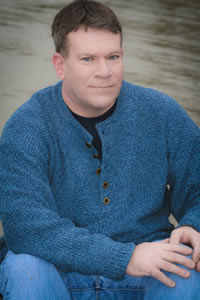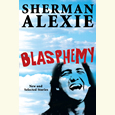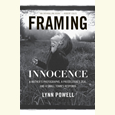How Things Work in Memphis
Memphis and its politics provide the setting for Blake Fontenay’s spoofy thriller
Mayor Pete Pigg has a grand design to make Memphis the home of The World Barbecue Hall of Fame. Who could complain about new construction jobs, a tourist boom, and lots of money to spread around? The bigger question: who gets the money? After ten years as a reporter for the Memphis Commercial Appeal, Blake Fontenay (now a resident of Old Hickory, Tennessee) has a pretty good idea of where it will go. He knows Memphis politics and uses its rich tradition of absurdity and sleaze as the backdrop for his first novel, The Politics of Barbecue. It’s all here: deal-making and threats, hidden agendas, chases and violence, beautiful women, intrigue of all sorts—everything a fancier of slightly-less-than-serious thrillers could want.
The narrator of The Politics of Barbecue is Joe Miller, a Memphis copywriter and “a man of modest wants.” His next PR assignment is to publicize and push Pigg’s vision for the new Barbecue Hall of Fame, to be located next to the Pyramid. The mayor has recruited a Hollywood starlet named Dawn Funderburke, “known simply as Dawn” to locals, to be the face of the project. A Memphis native, Dawn is a celebrity of the “stunning blond beauty with dark eyes and a killer figure” type.
 Both Dawn and Joe suspect the mayor’s real motives for pushing this project and recoil at the kind of behind-the-scenes “payola checklist” the mayor is accumulating around the Hall of Fame project: deals with people like the city-council chairman, a porn-movie producer, a charismatic black preacher, and a violent and arrogant Kansas rancher/entrepreneur who tries to undercut and steal Pigg’s idea. Joe and Dawn work with a colorful cast of side characters—Joe’s buddy Scott, an Elvis impersonator and accused arsonist of blight; Scott’s lawyer, a “strikingly beautiful black woman . . . with pale green eyes, and blond dreadlocks”; and a crossbow-wielding scion of an ancient and fabulously rich Memphis family, currently living as a dropped-out recluse—to expose Mayor Pigg’s real motives behind the Hall of Fame: great wealth for himself through development of the derelict industrial property along the shore of Wolf River harbor.
Both Dawn and Joe suspect the mayor’s real motives for pushing this project and recoil at the kind of behind-the-scenes “payola checklist” the mayor is accumulating around the Hall of Fame project: deals with people like the city-council chairman, a porn-movie producer, a charismatic black preacher, and a violent and arrogant Kansas rancher/entrepreneur who tries to undercut and steal Pigg’s idea. Joe and Dawn work with a colorful cast of side characters—Joe’s buddy Scott, an Elvis impersonator and accused arsonist of blight; Scott’s lawyer, a “strikingly beautiful black woman . . . with pale green eyes, and blond dreadlocks”; and a crossbow-wielding scion of an ancient and fabulously rich Memphis family, currently living as a dropped-out recluse—to expose Mayor Pigg’s real motives behind the Hall of Fame: great wealth for himself through development of the derelict industrial property along the shore of Wolf River harbor.
With a cast, setting, and setup like this, how could the pages fail to turn themselves? And they do, though some suspension of disbelief is required. The dialogue is snappy, as befits the genre, and there’s plenty of tension. Serious violence is limited, however: while there are many threats, no actual murders take place. Lots of local color and description bring the city alive to outsiders.
The real theme of the book is the way what’s best about Memphis tends to be eclipsed by corruption and graft. As Joe’s buddy Scott points out, “all the good stuff we’ve got here is overshadowed by the problems—the crime, the crappy schools, and the blight.” The River City has all the attractions of New Orleans, but unlike the Big Easy, “We’re the punch line to national jokes.” Blake Fontenay’s The Politics of Barbecue works as a kind of joke itself, poking fun at Memphis in overdrawing its power brokers.
Nevertheless, as the book makes clear, people retain an emotional attachment to Memphis, in spite of its manifold faults. They might try to be too cool to admit it, but it’s their home, and they hate to see the city served up like a barbecued pig to the already rich by the already rich when there are so many economic and social problems that need attention. Of course, Fontenay also characterizes the virtuous Memphian loyalists as flawed and over the top, but we like them anyway and root for their never-doubted triumph.
Blake Fontenay will discuss The Politics of Barbecue at Parnassus Books in Nashville on September 9 at 2 p.m., at The Booksellers at Laurelwood in Memphis on September 18 at 6 p.m., and at the twenty-fourth annual Southern Festival of Books, held October 12-14 at Legislative Plaza in Nashville. All events are free and open to the public.


